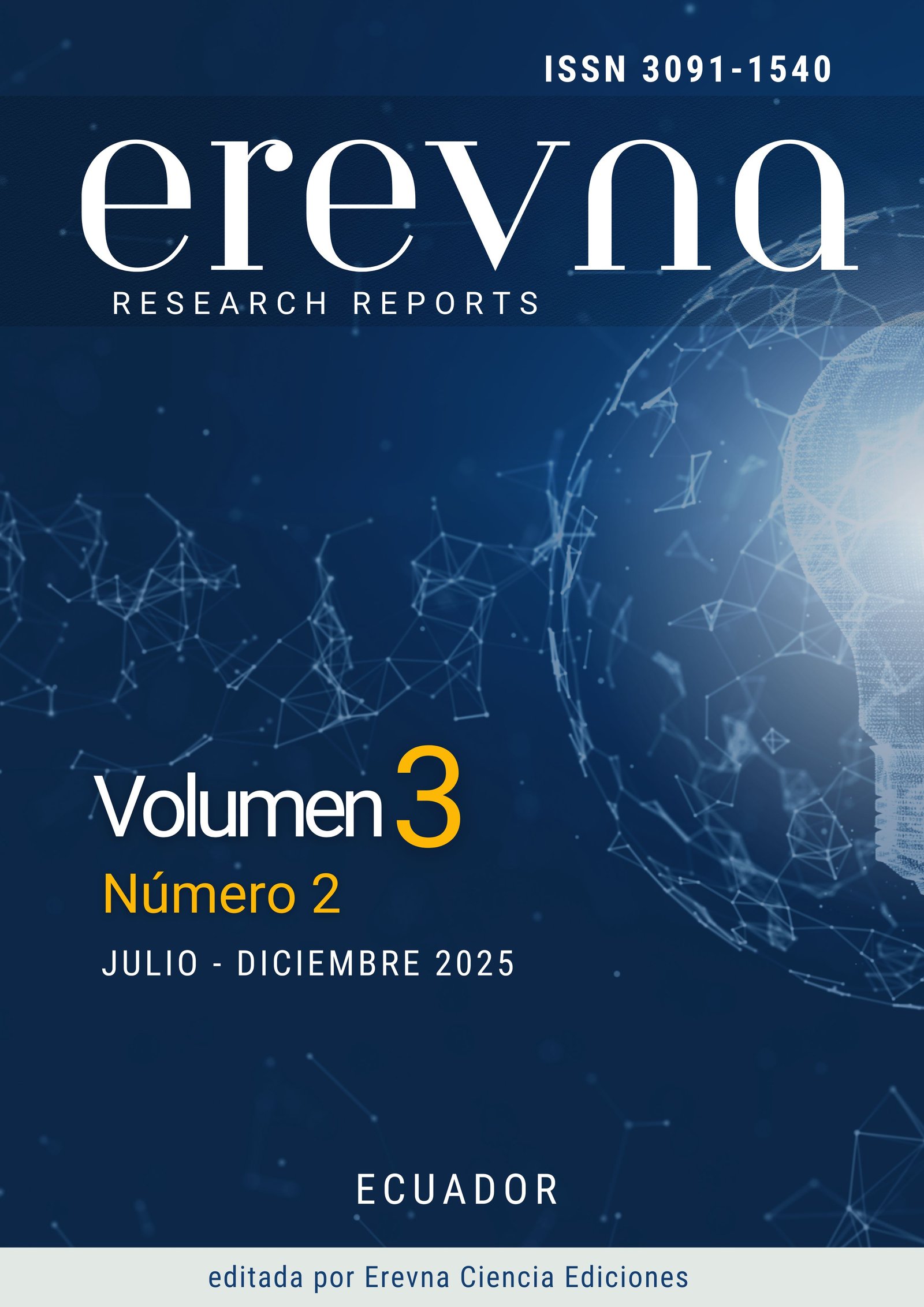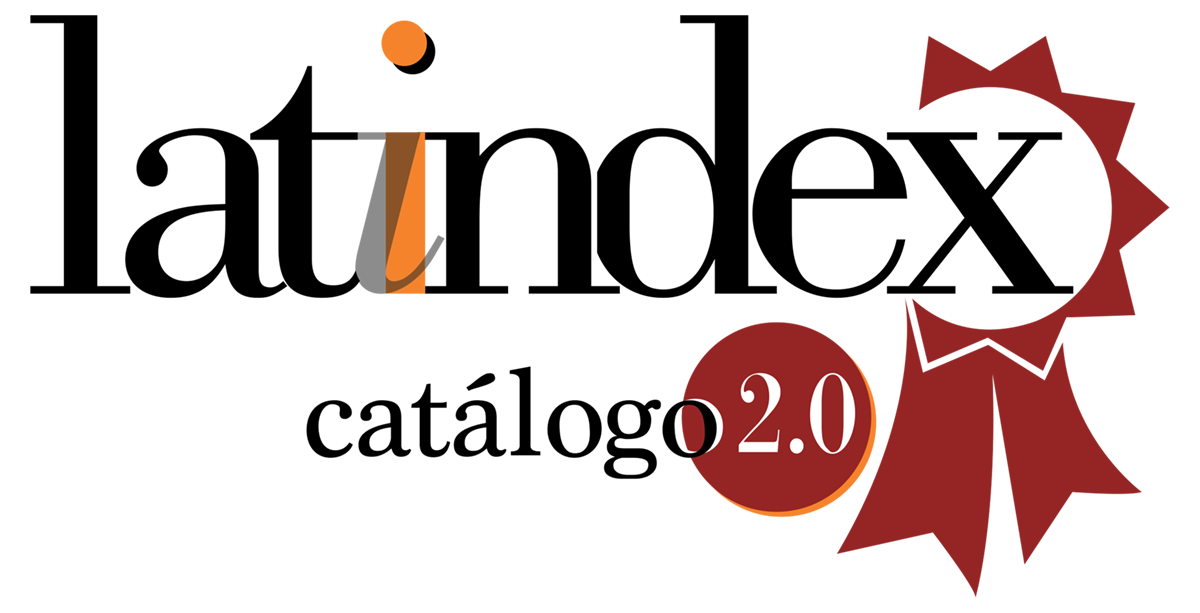Psychosocial Intervention Program to Address Depression in Adolescents from an Ecuadorian Educational Institution
DOI:
https://doi.org/10.70171/dqehfy17Keywords:
psychological well-being, emotional education, mental health preventionAbstract
Justification: adolescence is a vulnerable stage for the development of mental health disorders, with depression standing out due to its high prevalence and severe consequences. In this context, an initial diagnosis was carried out in an educational institution through a semi-structured interview with the school psychologist and a checklist applied to upper secondary students. Signs of mild to moderate depressive symptoms and difficulties in emotional regulation were identified. Objective: a psychosocial intervention program with a preventive and educational approach was designed and implemented, aiming to strengthen adolescents’ emotional well-being through psychoeducational strategies and the development of resilience. Methodology: a quantitative design with a quasi-experimental approach was used to implement and evaluate the psychoeducational program "Lights of Hope", targeting 90 adolescents aged 12 to 15. Results: after the intervention, students showed improved understanding of depression, greater emotional openness, and increased use of breathing techniques for self-regulation. Most participants experienced a reduction in irritability, sadness, and physical symptoms. However, difficulties in motivation, anxiety, and family connection persisted, highlighting the need for more prolonged and targeted interventions. Conclusion: while the psychoeducational workshop was an effective strategy for improving certain emotional and cognitive aspects related to adolescent depression, it should be part of a broader and more sustained intervention plan.
Downloads
References
Ato, M., López-García, J. J., & Benavente, A. (2013). Un sistema de clasificación de los diseños de investigación en psicología. Anales de Psicología/Annals of Psychology, 29(3), 1038-1059. https://doi.org/10.6018/analesps.29.3.178511
Azúa Fuentes, E., Rojas Carvallo, P., & Ruiz Poblete, S. (2020). Bullying as a risk factor for depression and suicide. Revista chilena de pediatría, 91(3), 432-439. http://dx.doi.org/10.32641/rchped.v91i3.1230
Beck, A. T. (2019). A 60-year evolution of cognitive theory and therapy. Perspectives on Psychological Science, 14(1), 16-20. https://doi.org/10.1177/1745691618804187
Beirão, D., Monte, H., Amaral, M., Longras, A., Matos, C., & Villas-Boas, F. (2020). Depression in adolescence: a review. Middle East current psychiatry, 27(1), 50. https://doi.org/10.1186/s43045-020-00050-z
Blakemore, S. J. (2019). Adolescence and mental health. The lancet, 393(10185), 2030-2031. https://psycnet.apa.org/doi/10.1016/S0140-6736(19)31013-X
Bravo, O. F. V., Castro, R. F. E., & Vinces, Z. M. M. (2021). Síntomas de ansiedad y depresión asociados a los niveles de riesgo del consumo de alcohol y tabaco en adolescentes de la ciudad de loja, ecuador. Health and addictions: salud y drogas, 21(1), 279-293. https://doi.org/10.21134/haaj.v21i1.584
Brown, N. W. (2018). Psychoeducational groups: Process and practice. Routledge.
Buitrón, M. C. C., Fonseca, C. F. M., Vega, J. V. R., & Jácome, J. E. V. (2023). Ansiedad y depresión en estudiantes de 12 a 18 años en un colegio de la ciudad de Quito–Ecuador: Anxiety and Depression in Students from 12 to 18 Years Old in a School in the City Of Quito-Ecuador. Latam: revista latinoamericana de Ciencias Sociales y Humanidades, 4(1), 54. https://doi.org/10.56712/latam.v4i1.291
Clayborne, Z. M., Varin, M., & Colman, I. (2019). Systematic review and meta-analysis: adolescent depression and long-term psychosocial outcomes. Journal of the American Academy of Child & Adolescent Psychiatry, 58(1), 72-79. https://doi.org/10.1016/j.jaac.2018.07.896
Coe-Odess, S. J., Narr, R. K., & Allen, J. P. (2019). Emergent emotions in adolescence. In Handbook of emotional development (pp. 595-625). Cham: Springer International Publishing. https://doi.org/10.1007/978-3-030-17332-6_23
Dalgard, O. S., Sørensen, T., Sandanger, I., & Brevik, J. I. (1996). Psychiatric interventions for prevention of mental disorders: a psychosocial perspective. International Journal of Technology Assessment in Health Care, 12(4), 604-617. https://doi.org/10.1017/S0266462300010916
Dey, B. K., & Sultana, M. S. (2019). Adjustments and depression of adolescents. Chittagong University Journal of Biological Sciences, 125-140. https://doi.org/10.3329/cujbs.v9i1.73789
Dupéré, V., Dion, E., Nault-Brière, F., Archambault, I., Leventhal, T., & Lesage, A. (2018). Revisiting the link between depression symptoms and high school dropout: Timing of exposure matters. Journal of Adolescent Health, 62(2), 205-211. https://doi.org/10.1016/j.jadohealth.2017.09.024
East, L., Jackson, D., O’Brien, L., & Peters, K. (2010). Storytelling: an approach that can help to develop resilience. Nurse researcher, 17(3). https://doi.org/10.7748/nr2010.04.17.3.17.c7742
Falcón, L. M. M., & Alomaliza, C. (2017). La disfuncionalidad familiar y los niveles de depresión en adolescentes de una unidad educativa rural en Ambato, Ecuador. Revista Eniac Pesquisa, 6(2), 315-324. https://doi.org/10.22567/rep.v6i2.471
Farella Guzzo, M., & Gobbi, G. (2023). Parental death during adolescence: A review of the literature. OMEGA-Journal of Death and Dying, 87(4), 1207-1237. https://doi.org/10.1177/00302228211033661
Fullerton, D. J., Zhang, L. M., & Kleitman, S. (2021). An integrative process model of resilience in an academic context: Resilience resources, coping strategies, and positive adaptation. Plos one, 16(2), e0246000. https://doi.org/10.1371/journal.pone.0246000
Ge-Stadnyk, J. (2023). Promises and premises: Emoji in youth mental health and emotional well-being. First Monday. https://doi.org/10.5210/fm.v28i11.13209
Gladstone, T., Buchholz, K. R., Fitzgibbon, M., Schiffer, L., & Lee, M. (2021). Adolescent Depression Prevention Intervention in Primary Care: Internalizing Symptom Outcomes. Using Information and Communication Technologies (ICT) for Mental Health Prevention and Treatment, 17, 7.
Glied, S., & Pine, D. S. (2002). Consequences and correlates of adolescent depression. Archives of pediatrics & adolescent medicine, 156(10), 1009-1014. https://doi.org/10.1001/archpedi.156.10.1009
Godoy, D., Eberhard, A., Abarca, F., Acuña, B., & Muñoz, R. (2020). Psicoeducación en salud mental: una herramienta para pacientes y familiares. Revista Médica Clínica Las Condes, 31(2), 169-173. https://doi.org/10.1016/j.rmclc.2020.01.005
Hankin, B. L. (2020). Screening for and personalizing prevention of adolescent depression. Current directions in psychological science, 29(4), 327-332. https://doi.org/10.1177/0963721420920231
Horowitz, L. M., Mournet, A. M., Lanzillo, E., He, J. P., Powell, D. S., Ross, A. M., ... & Bridge, J. A. (2021). Screening pediatric medical patients for suicide risk: is depression screening enough?. Journal of Adolescent Health, 68(6), 1183-1188. https://doi.org/10.1016/j.jadohealth.2021.01.028
Huang, D. (2021, October). The effect of low self-esteem on development of depression: a meta-analysis. In 2021 6th International Conference on Modern Management and Education Technology (MMET 2021) (pp. 388-393). Atlantis Press. https://doi.org/10.2991/assehr.k.211011.070
Inga Bravo, A. E., Astudillo Sarmiento, M. A., Pacheco Naranjo, A. M., & Morocho Malla, M. I. (2020). Frecuencia de ansiedad y depresión en niñas y adolescentes de la casa de acogida" Miguel León" en el cantón Cuenca, Ecuador. Rev. méd. Hosp. José Carrasco Arteaga, 188-192. http://dx.doi.or-g/10.14410/2020.12.3.ao.27
INJU MIDES & UNICEF Uruguay. (2021, junio 12). Ni silencio ni tabú. Hablemos de salud mental [Video]. YouTube. https://www.youtube.com/watch?v=ZYmjC-uwmj8
Jannah, N., Winta, M. V. I., & Pratiwi, M. M. S. (2024). Enhancing Maternal Mental Health Knowledge through Hypnocomfort Pregnancy Multimodal Psychoeducation Media. International Journal of Educational Qualitative Quantitative Research, 3(2), 15-24. https://doi.org/10.58418/ijeqqr.v3i2.107
Jones, R. B., Thapar, A., Stone, Z., Thapar, A., Jones, I., Smith, D., & Simpson, S. (2018). Psychoeducational interventions in adolescent depression: A systematic review. Patient education and counseling, 101(5), 804-816. https://doi.org/10.1016/j.pec.2017.10.015
Kallianta, M. D. K., Katsira, X. E., Tsitsika, A. K., Vlachakis, D., Chrousos, G., Darviri, C., & Bacopoulou, F. (2021). Stress management intervention to enhance adolescent resilience: A randomized controlled trial. EMBnet. journal, 26. https://doi.org/10.14806/ej.26.1.967
Konaszewski, K., Niesiobędzka, M., & Surzykiewicz, J. (2021). Resilience and mental health among juveniles: role of strategies for coping with stress. Health and quality of life outcomes, 19, 1-12. https://doi.org/10.1186/s12955-021-01701-3
LeMoult, J., Humphreys, K. L., Tracy, A., Hoffmeister, J. A., Ip, E., & Gotlib, I. H. (2020). Meta-analysis: exposure to early life stress and risk for depression in childhood and adolescence. Journal of the American Academy of Child & Adolescent Psychiatry, 59(7), 842-855. https://doi.org/10.1016/j.jaac.2019.10.011
Llistosella, M., Goni-Fuste, B., Martín-Delgado, L., Miranda-Mendizabal, A., Franch Martinez, B., Pérez-Ventana, C., & Castellvi, P. (2023). Effectiveness of resilience-based interventions in schools for adolescents: A systematic review and meta-analysis. Frontiers in Psychology, 14, 1211113. https://doi.org/10.3389/fpsyg.2023.1211113
Martinez Escobedo, I., Doherty, K., & Eccleston, C. (2024). Health promotion MOOCs (hpMOOCs): a dual lens for assessing quality. American Journal of Distance Education, 38(2), 168-184. https://doi.org/10.1080/08923647.2024.2325845
Miller, L., & Campo, J. V. (2021). Depression in adolescents. New England Journal of Medicine, 385(5), 445-449. https://doi.org/10.1056/NEJMra2033475
Moncrieff, J., Cooper, R. E., Stockmann, T., Amendola, S., Hengartner, M. P., & Horowitz, M. A. (2023). The serotonin theory of depression: a systematic umbrella review of the evidence. Molecular psychiatry, 28(8), 3243-3256. https://doi.org/10.1038/s41380-022-01661-0
Moreno-Gordillo, G. D. J., Trujillo-Olivera, L. E., García-Chong, N. R., & Tapia-Garduño, F. (2019). Suicidio y depresión en adolescentes: una revisión de la literatura Autores/as. Rev. chil. salud pública, 31-41. https://doi.org/10.5354/0719-5281.2019.55041
Mosquera, E. L. C., Rodríguez, J. P. P., & Parra, P. M. P. (2022). Tendencias actuales sobre la depresión, factores de riesgo y abuso de sustancias. Journal of American health, 5(1).
Muñoz, V., Alvarado, C. L. A., Barros, J. M. T., & Malla, M. I. M. (2021). Prevalencia de depresión y factores asociados en adolescentes: Artículo original. Revista ecuatoriana de pediatria, 22(1), 6-1. https://doi.org/10.52011/0008
Navarro-Loli, J. S., Moscoso, M., & Calderón-De la Cruz, G. (2017). La investigación de la depresión en adolescentes en el Perú: una revisión sistemática. Liberabit, 23(1), 57-74. http://dx.doi.org/https://doi.org/10.24265/liberabit.2017.v23n1.04
Oliveira, C. T. D., & Dias, A. C. G. (2023). How can psychoeducation help in the treatment of mental disorders?. Estudos de Psicologia (Campinas), 40, e190183. https://doi.org/10.1590/1982-0275202340e190183
Onnela, A., Hurtig, T., & Ebeling, H. (2021). A psychoeducational mental health promotion intervention in a comprehensive schools: Recognising problems and reducing stigma. Health Education Journal, 80(5), 554-566. https://doi.org/10.1177/0017896921994134
Organización Mundial de la Salud. (2023). Depresión. https://www.who.int/es/news-room/fact-sheets/detail/depression
Organización Mundial de la Salud. (2024). Salud del adolescente. https://www.who.int/es/health-topics/adolescent-health#tab=tab_1
Palacios, X. (2019). Adolescencia:¿ una etapa problemática del desarrollo humano?. Revista Ciencias de la Salud, 17(1), 5-8.
Petito, A., Pop, T. L., Namazova-Baranova, L., Mestrovic, J., Nigri, L., Vural, M., ... & Pettoello-Mantovani, M. (2020). The burden of depression in adolescents and the importance of early recognition. The Journal of pediatrics, 218, 265-267. https://doi.org/10.1016/j.jpeds.2019.12.003
Pinto, T. M., Laurence, P. G., Macedo, C. R., & Macedo, E. C. (2021). Resilience programs for children and adolescents: a systematic review and meta-analysis. Frontiers in psychology, 12, 754115. https://doi.org/10.3389/fpsyg.2021.754115
Reivich, K., Gillham, J. E., Chaplin, T. M., & Seligman, M. E. (2023). From helplessness to optimism: The role of resilience in treating and preventing depression in youth. In Handbook of resilience in children (pp. 161-174). Cham: Springer International Publishing. https://doi.org/10.1007/978-3-031-14728-9_9
Rigabert, A., Motrico, E., Moreno-Peral, P., Resurrección, D. M., Conejo-Cerón, S., Cuijpers, P., ... & Bellón, J. Á. (2020). Effectiveness of online psychological and psychoeducational interventions to prevent depression: Systematic review and meta-analysis of randomized controlled trials. Clinical Psychology Review, 82, 101931. https://doi.org/10.1016/j.cpr.2020.101931
Sallis, H., Evans, J., Wootton, R., Krapohl, E., Oldehinkel, A. J., Davey Smith, G., & Paternoster, L. (2017). Genetics of depressive symptoms in adolescence. BMC psychiatry, 17, 1-8. https://doi.org/10.1186/s12888-017-1484-y
Santiesteban, T. B., Borrás, A. R., & Domínguez, M. L. (2017). Adolescentes: razones para su atención. Correo Científico Médico de Holguín, 21(3), 858-875.
Santos, B., Pinho, L., Nogueira, M. J., Pires, R., Sequeira, C., & Montesó-Curto, P. (2024, June). Cognitive restructuring during depressive symptoms: A scoping review. In Healthcare (Vol. 12, No. 13, p. 1292). MDPI. https://doi.org/10.3390/healthcare12131292
Shorey, S., Ng, E. D., & Wong, C. H. (2022). Global prevalence of depression and elevated depressive symptoms among adolescents: A systematic review and meta‐analysis. British Journal of Clinical Psychology, 61(2), 287-305. https://doi.org/10.1111/bjc.12333
Snow, R. E. (1986). Individual differences and the design of educational programs. American Psychologist, 41(10), 1029.
van Aswegen, T., Samartzi, E., Morris, L., van Der Spek, N., de Vries, R., Seedat, S., & van Straten, A. (2023). Effectiveness of family‐based therapy for depressive symptoms in children and adolescents: A systematic review and meta‐analysis. International Journal of Psychology, 58(6), 499-511. https://doi.org/10.1002/ijop.12926
Viduani, A., Benetti, S., Martini, T., Buchweitz, C., Ottman, K., Wahid, S. S., ... & Kieling, C. (2021). Social isolation as a core feature of adolescent depression: a qualitative study in Porto Alegre, Brazil. International Journal of Qualitative Studies on Health and Well-Being, 16(1), 1978374. https://doi.org/10.1080/17482631.2021.1978374
Weissman, MM, Berry, OO, Warner, V., Gameroff, MJ, Skipper, J., Talati, A., ... y Wickramaratne, P. (2016). Un estudio de 30 años de tres generaciones con alto y bajo riesgo de depresión. JAMA Psychiatry , 73 (9), 970-977. https://doi.org/10.1001/jamapsychiatry.2016.1586
Welz, A., Reinhard, I., Alpers, G. W., & Kuehner, C. (2018). Happy thoughts: Mind wandering affects mood in daily life. Mindfulness, 9(1), 332-343. https://doi.org/10.1007/s12671-017-0778-y
Young, K. S., Sandman, C. F., & Craske, M. G. (2019). Positive and negative emotion regulation in adolescence: links to anxiety and depression. Brain sciences, 9(4), 76. https://doi.org/10.3390/brainsci9040076
Zhindón, M. D. R. R., Herrera, A. R. R., & Jimenez, D. M. O. (2023). Prevalence of anxiety and depression in ecuadorian adolescents. Archives of Prevalence of anxiety and depression in ecuadorian adolescents and Anxiety, 9(2), 045-050. https://orcid.org/0000-0002-9328-1707
Zisopoulou, T. y Varvogli, L. (2023). Métodos de gestión del estrés en niños y adolescentes: pasado, presente y futuro. Investigación Hormonal en Pediatría , 96 (1), 97-107. https://doi.org/10.1159/000526946
Downloads
Published
Issue
Section
Categories
License
Copyright (c) 2025 Fernanda Belén Navarrete-Chávez (Autor/a)

This work is licensed under a Creative Commons Attribution-NonCommercial-ShareAlike 4.0 International License.






















